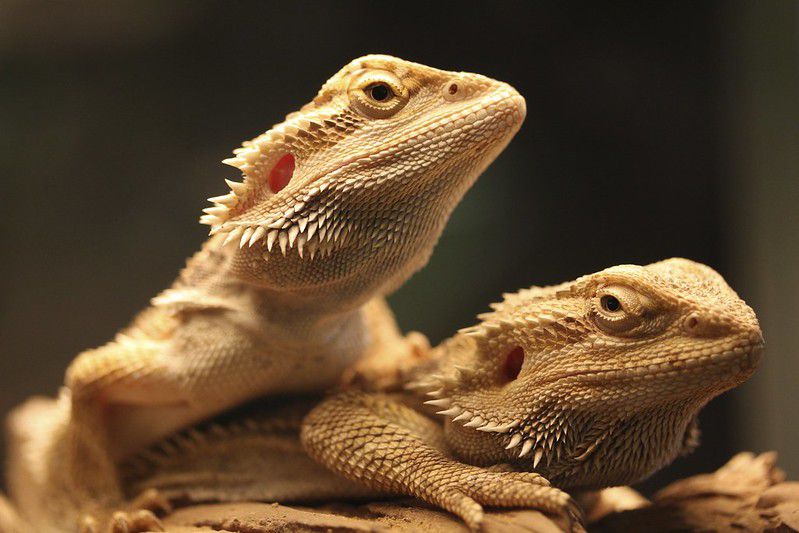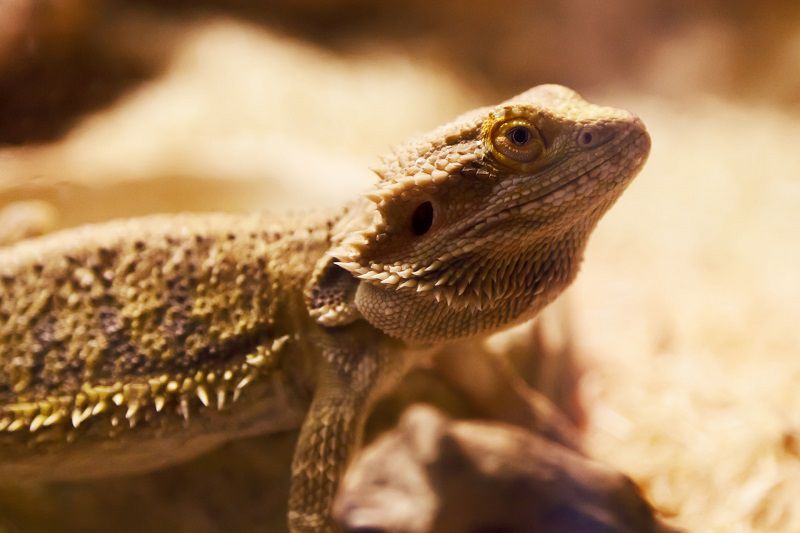Table of Contents
Bearded dragons have become one of the most popular pets for first-time reptile owners in the United States. After being introduced to the U.S. in the 1990s, the captive population has grown at a huge rate. According to research from Jose Valdez, bearded dragons make up around 40% of Google searches pertaining to pet reptiles in the U.S. Despite this popularity, and the best intentions of those who have or want a bearded dragon, there are some behaviors exhibited by beardies that have the potential to surprise and alarm owners in equal measure.
from Jose Valdez, bearded dragons make up around 40% of Google searches pertaining to pet reptiles in the U.S. Despite this popularity, and the best intentions of those who have or want a bearded dragon, there are some behaviors exhibited by beardies that have the potential to surprise and alarm owners in equal measure.
Hibernation vs. Brumation
One of the and most noticeable and impactful behaviors of bearded dragons is hibernating. Hibernation is something usually associated with mammals such as bears, squirrels, skunks, and bats. Hibernating mammals will often fall into such a deep sleep that they will not wake for most of the winter, until weather conditions improve. Cold-blooded animals that ‘hibernate’ over the winter months do something similar. In reptiles, the process is known as brumation . In the wild, colder periods of the year are not an environment in which bearded dragons thrive because:
. In the wild, colder periods of the year are not an environment in which bearded dragons thrive because:
- food sources become scarce
- temperature drops affect energy and wellbeing
- lack of sunlight reduces digestion and bone health.
In captivity, in a terrarium that is warm and comfortable all year round, it may be a surprise to hear that beardies will still brumate. Evolutionary practices still take precedence over a comparatively short time of domestication. During brumation, a bearded dragon will lower its heart rate and metabolism and enter periods of deep sleep. They will tend to not sleep for the entire winter, like some mammals. Instead, they will drastically reduce their movement in-between periods of sleep.

Brumating (Hibernating) Bearded Dragons
It is important for owners to recognize signs of brumation so as to know what is going on and to not worry unnecessarily. There are a number of things to look out for in bearded dragons’ behavior:
- Sleep – this is the major sign of brumation. General lethargy or a drastic change in movement and energy levels are indicators that brumation is close or in progress.
- Hiding – A beardie preparing for brumation will spend less time in the open areas of their cage and will instead seek darker areas. They will often make a nesting spot by burrowing into the substrate. This mimics behavior in the wild where brumating bearded dragons can use the moisture in the soil to stay hydrated.
- Appetite – Unlike mammals, who increase the amount they eat before they hibernate, beardies use their fat reserves to survive the brumation period. They will sometimes refuse food if they are about to start brumating. Following on from this reduced appetite will be a reduction in the amount of waste they produce.
Some of these symptoms may be similar to those of an illness, which naturally can be concerning to inexperienced owners. It is not typical for bearded dragons under 10 months of age to begin brumating as a healthy appetite and proper nutrition is crucial to their growth. Despite the loss of appetite during brumation, bearded dragons will generally not lose too much weight, using their existing fat stores to get them through. If there is noticeable weight loss, then it could be a sign of a health problem unrelated to brumation. A general rule is that if there are physical symptoms as well as behavioral changes then it could be a signal of a health problem. These physical signs could include
- a general change of color, especially a darkening
- tail rot
- pale gums.
Brumation is a natural process for bearded dragons and is their version of hibernating. Despite the comfort of the year-long round imitation of their natural habitat, captive beardies are adept at noticing small environmental changes around them, which can trigger hibernation instincts to kick in. Most bearded dragons will happily get on with brumating on their own, including ending their period of hibernation of their own accord. If any of the above physical symptoms do accompany brumation then I recommend taking the affected beardie to a veterinarian. However, the vast majority of the time a bearded dragon will brumate healthily.
Photo Credits:
- Featured Image (Bearded Dragon): Petr Kratochvil – CC0 Public Domain
- 2 Bearded Dragons: andedam
 – CC BY-NC-SA 2.0
– CC BY-NC-SA 2.0

